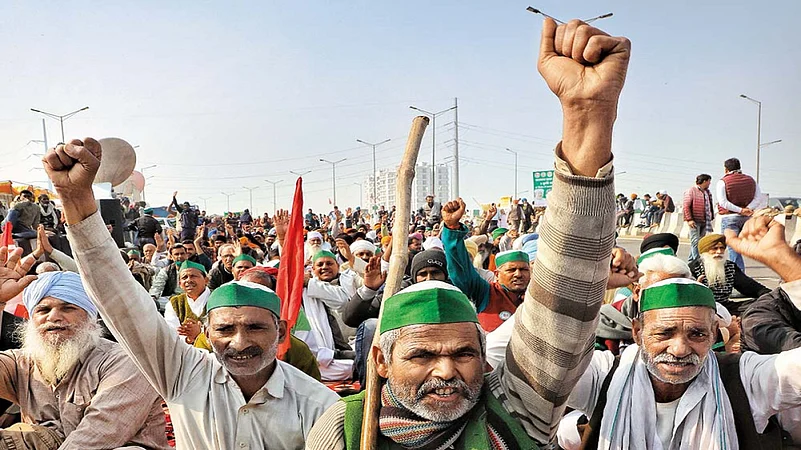The Supreme Court has stayed the farm laws. The government is offering an 18-month moratorium on its implementation. However, the farmers are not budging or backing down. The protests sites are, in fact, attracting larger crowds. The more the government tries to browbeat farmers by misusing the State’s coercive instruments, the more the resistance would grow and the fire spread.
There is clearly a breakdown of trust. Agrarian India no longer trusts the government and other institutions of the State, which face the gravest challenge to their legitimacy as the hollowing out over the past six-and-a-half years has left them bereft of credibility. And the manner in which politicians have been hooted and virtually chased out from the protest sites should make them reflect on their social standing if not trustworthiness.
ALSO READ: Farming An Agitation
For agrarian India, the issue is existential. Those governing India must understand this fundamental reality. Even under the minimum support price (MSP) regime, all that a small or marginal farmer makes is a pittance. Around 81 crore people (60 per cent of India’s population) depend on agriculture for livelihood. The average size of a landholding is around 2.6 acres. Conventional wisdom holds that 84 per cent of farmers, at least in north-western India, have landholdings of 3-5 acres. In a good year, a household can earn about Rs 15,000 a month. If a natural calamity strikes, it is nothing short of catastrophe.
If a contract farmer takes land on lease and pays Rs 40,000 per acre annually to the owner, then his monthly income goes down to around Rs 5,000 a month for a three-acre farm. These numbers are dehors the all-pervasive spectre of rural indebtedness in which a farmer is on an average paying an 18-20 per cent annual rate of interest to the moneylender from cradle to cremation. That is why so many farmers commit suicide if the crop fails.
ALSO READ: ‘Modi Is Pouring Fat Into Fire’
Most farming households supplement their income by either doing some dairy or poultry farming, or tending the fields of others. Some have a family member either in a petty government job, the armed forces or in some foreign land, who lends a helping hand. Still survival is very difficult. Those who cultivate crops that do not have an assured support price or come from states where the MSP system is not prevalent are worse off as the former food secretary of one such state pointed it out to me.
There is also a deeper issue that goes well beyond the economic. Ownership of land has a social prestige attached to it. Most of the disputes in India’s rural heartland are over land ownership and delineation. Hypothetically speaking, even if remuneration to the farmer goes up as a consequence of the new farm laws, no self-respecting rustic will accept serfdom on his own land. They would be loath to become slaves of the conglomerates and oligarchs waiting to move in. If contract farming leads to a fundamental change in India’s cropping patterns, then it would raise the apparition of food insecurity. The experience of many nations that have moved away from grain to cash crops like ethanol has been abysmal and marked by food riots in case of shortages.
Where do we then go from here with apprehensions and misgivings running deep? The options are limited. One possibility is that the Supreme Court decides the petitions challenging the constitutionality and validity of the farm laws expeditiously. Ultimately, in a country governed by the Constitution and the rule of law, only the apex court must have the last word. However, given the superheated situation, it may perhaps be wiser to let the top court reflect on the issues involved in a calmer setting.
The only other pathway is to let a joint select committee of both Houses of Parliament look at the farm laws anew in the context of the prevailing agrarian realities and the structural issues that bedevil the sector. They could consult all stakeholders and carry out field visits before arriving at their conclusions. This matter requires the latitude of time for resolution.
(Views are personal)
Lawyer, MP, former Union I&B minister




















